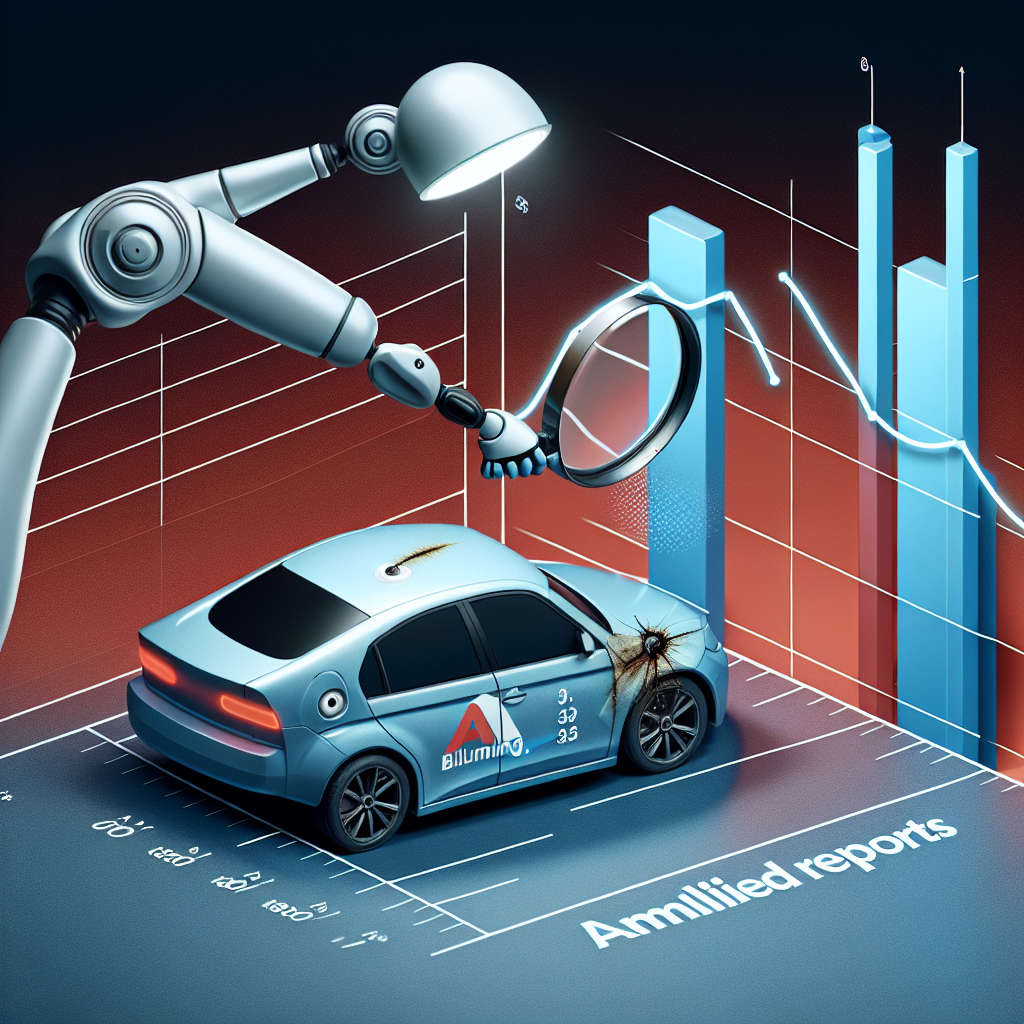
In a bold move, Hertz has integrated advanced AI technology into its operations, fundamentally changing the car rental experience. The company is launching AI inspection portals at major U.S. airports, beginning with Atlanta and planning to expand to 100 airports by the end of 2025. These AI-driven systems are designed to assess vehicles returned to the company using a sophisticated camera and sensor setup, often described as an ‘MRI for vehicles.’ This shift allows Hertz to identify damage that would previously have gone unnoticed by rental staff, including hard-to-spot issues such as underbody damage, uneven tire wear, and even hairline cracks in windshields.
The implications of this technology are significant, particularly in how they impact customer billing. What used to be a rare occurrence is rapidly changing; Hertz is now reportedly billing customers for minor damages at an unprecedented rate. For instance, a seemingly insignificant one-inch scuff on a wheel is being charged to renters at $440—comprising a $250 repair cost, a $125 processing fee, and a $65 administrative fee. Many of these charges highlight a concerning trend: they may not even reflect repairs being conducted by the company, rather, they stand as a means for Hertz to collect revenue from unsuspecting customers.
This new approach is not about improving accuracy or even enhancing convenience. Instead, it appears to serve as a strategic way for Hertz to maximize revenue by targeting a broader swath of customers, many of whom may unknowingly fall victim to these practices. The company has seemingly adjusted the parameters of what constitutes billable damage, now going after five times as many customers as before. This shift in strategy enables a notable increase in the issuance of damage claims, which previously hovered between 0.3% and 1% of rentals. With about 10% of returned vehicles likely showing minor dents, scrapes, or glass chips, the AI system allows Hertz to charge for damages that were historically overlooked.
The rapid expansion of this practice raises serious questions about customer experience and ethical business conduct in the car rental industry. Historically, renters relied on major companies like Hertz for a stress-free experience, often avoiding the hassle of contention over minor vehicle damages. This new reality dismantles that value proposition, placing an increased emphasis on scrutiny and billing rather than customer service and satisfaction. Customers are now faced with a challenge that may not have existed previously: the necessity of meticulously documenting any vehicle condition prior to rental, as Hertz’s AI system raises the stakes significantly.
Statistical insights reveal a distinct shift in the landscape, with Hertz stating that fewer than 3 percent of vehicles scanned by their AI system actually show billable damage. This statistic starkly contrasts with the traditional handling of damage claims, wherein a substantial percentage of those claims are written off. The implications extend beyond just Hertz, signaling that competitors may feel pressured to adopt similar AI systems to maintain profitability. This creates an industry-wide focus on damage claims that could redefine the customer experience entirely.
As more customers find themselves navigating this new rental car environment, the potential for frustration and dissatisfaction is heightened. Rental agreements that once relied on trust may now require significant scrutiny from consumers who will need to adapt to protect their interests. This evolution represents a paradigm shift in how car rental companies may approach consumer relations, transparency, and revenue generation.
In conclusion, Hertz’s aggressive use of AI technology to drive up billing for minor damage marks a notable turning point in the car rental sector. As the company seeks to leverage this technology across its network, customers will need to be vigilant, prepared to document the condition of vehicles meticulously and engage critically with rental agreements. The future of car rentals may depend significantly on how this technology evolves and how consumers respond to its impact.

Leave a Reply